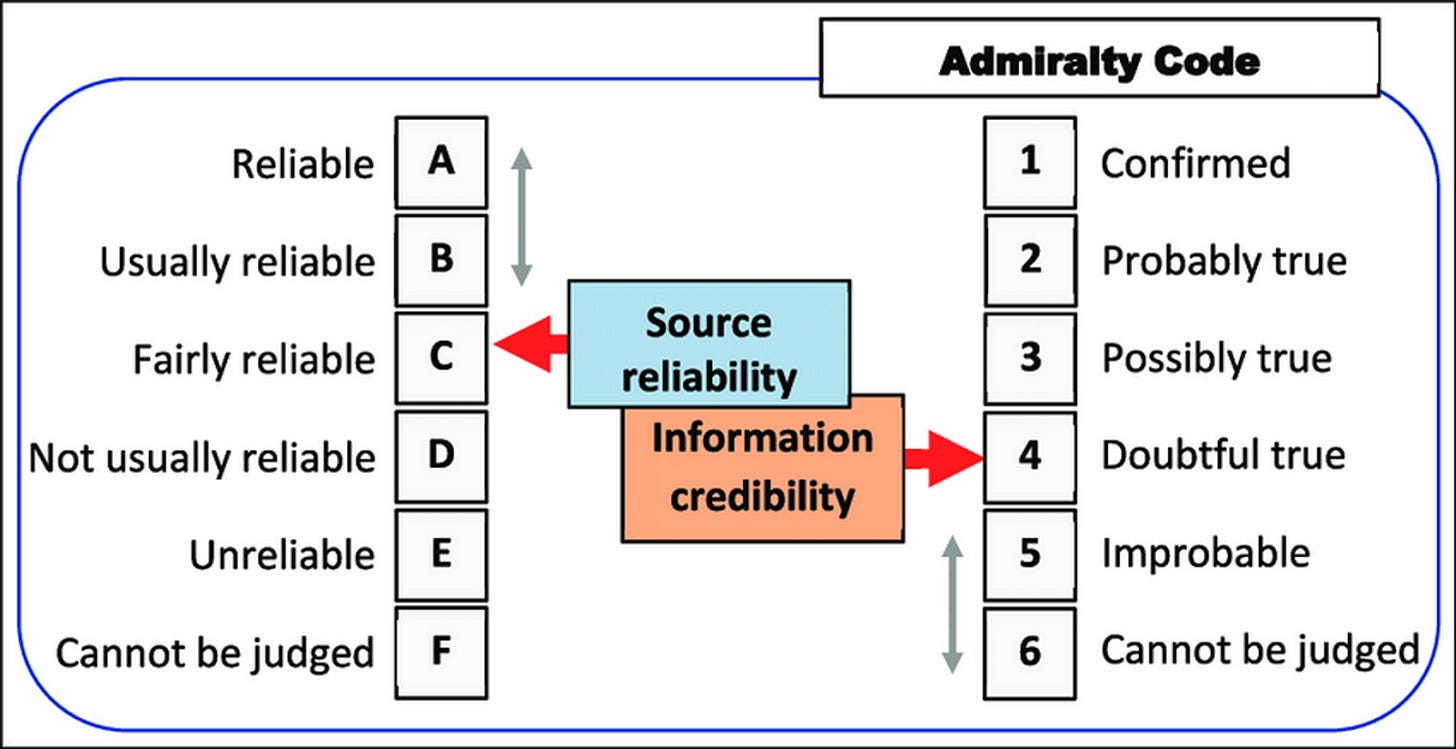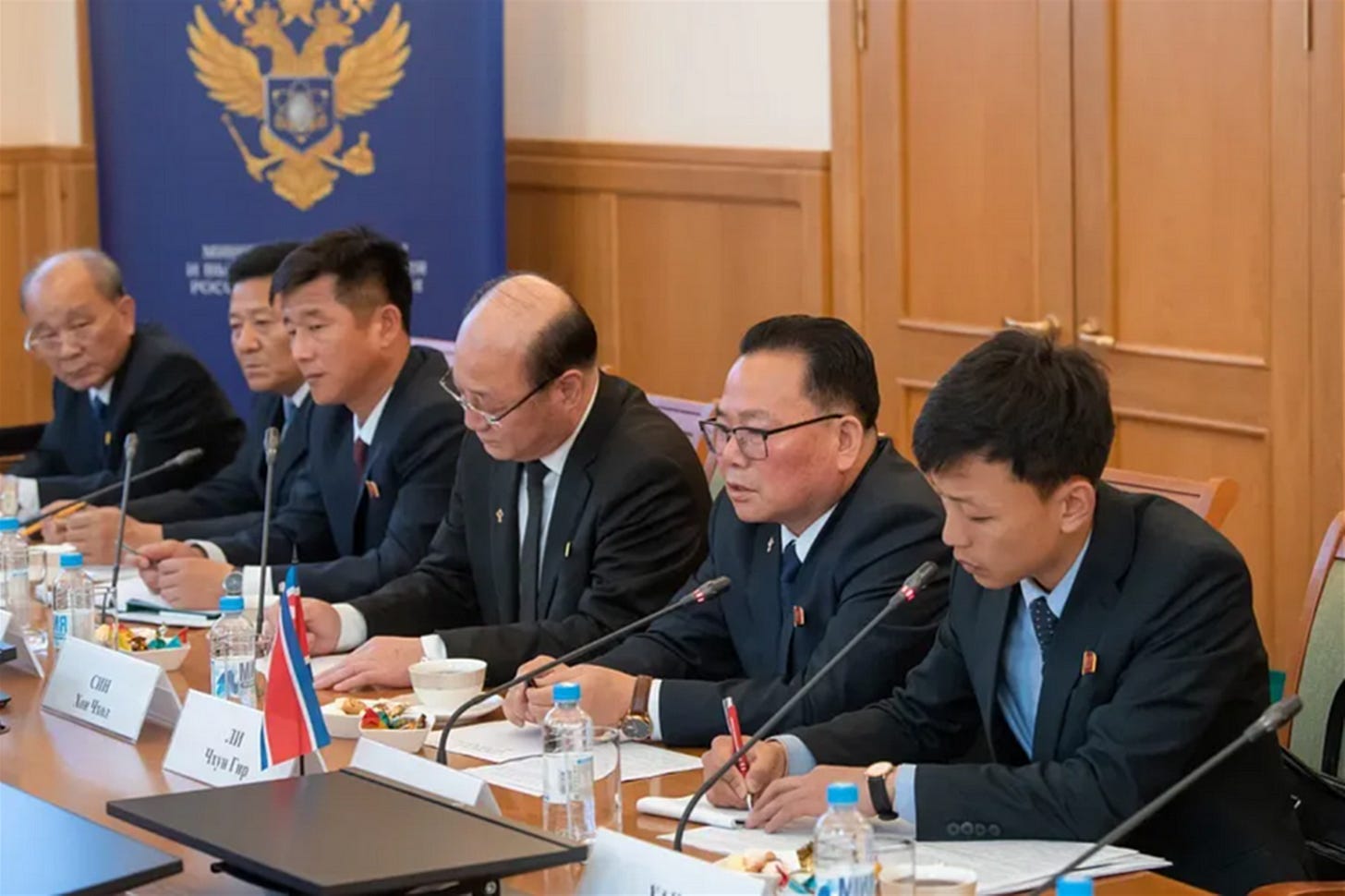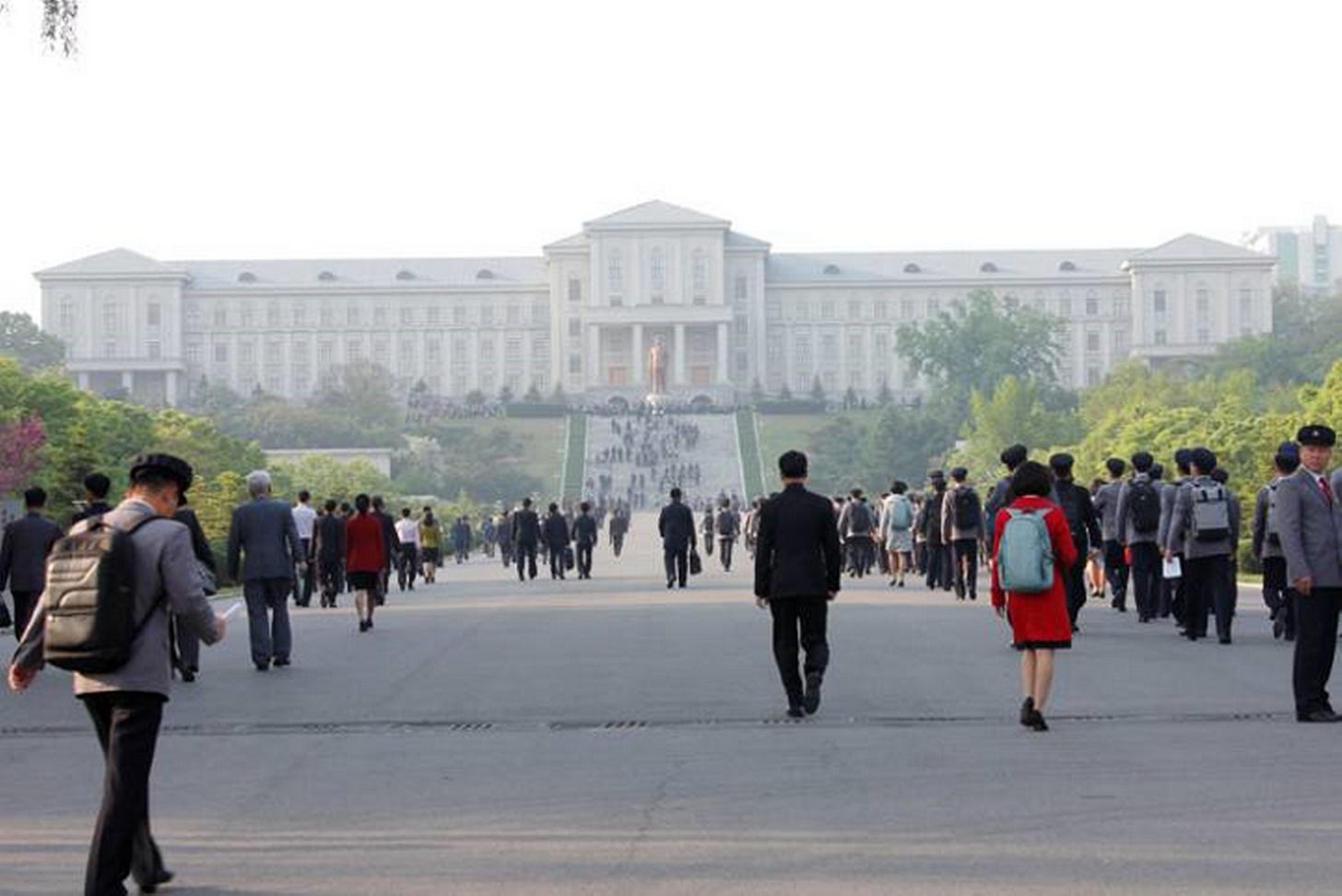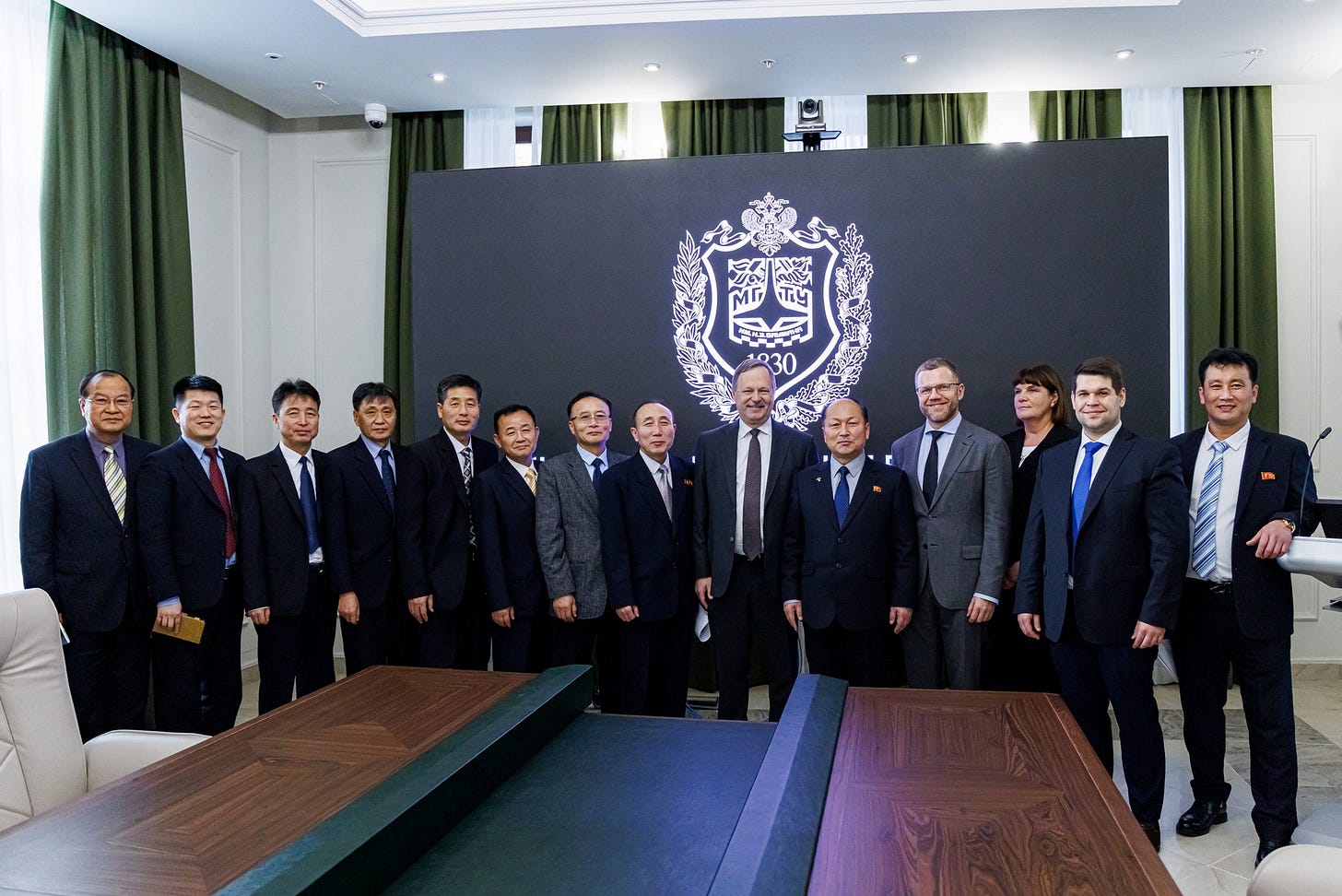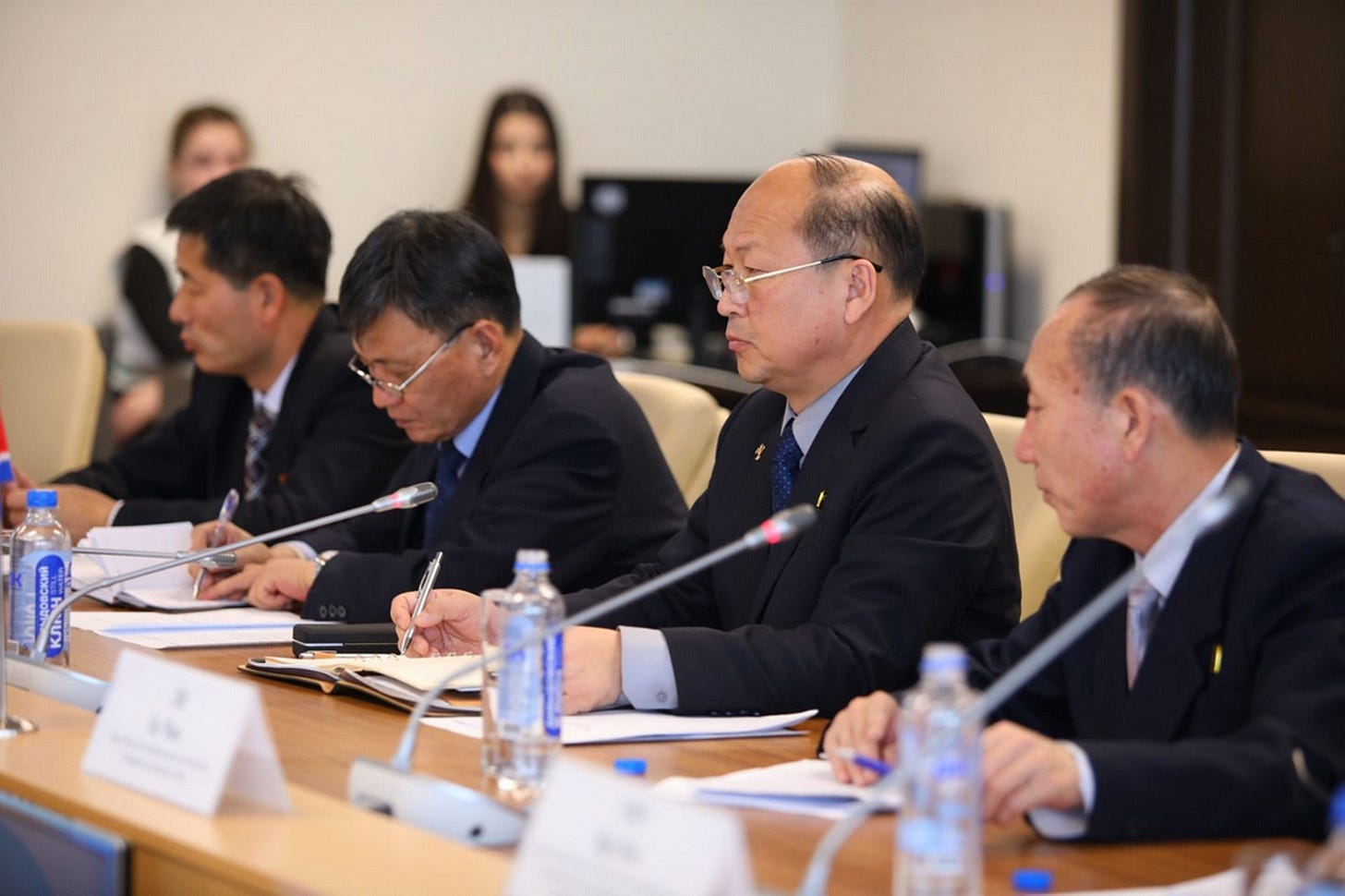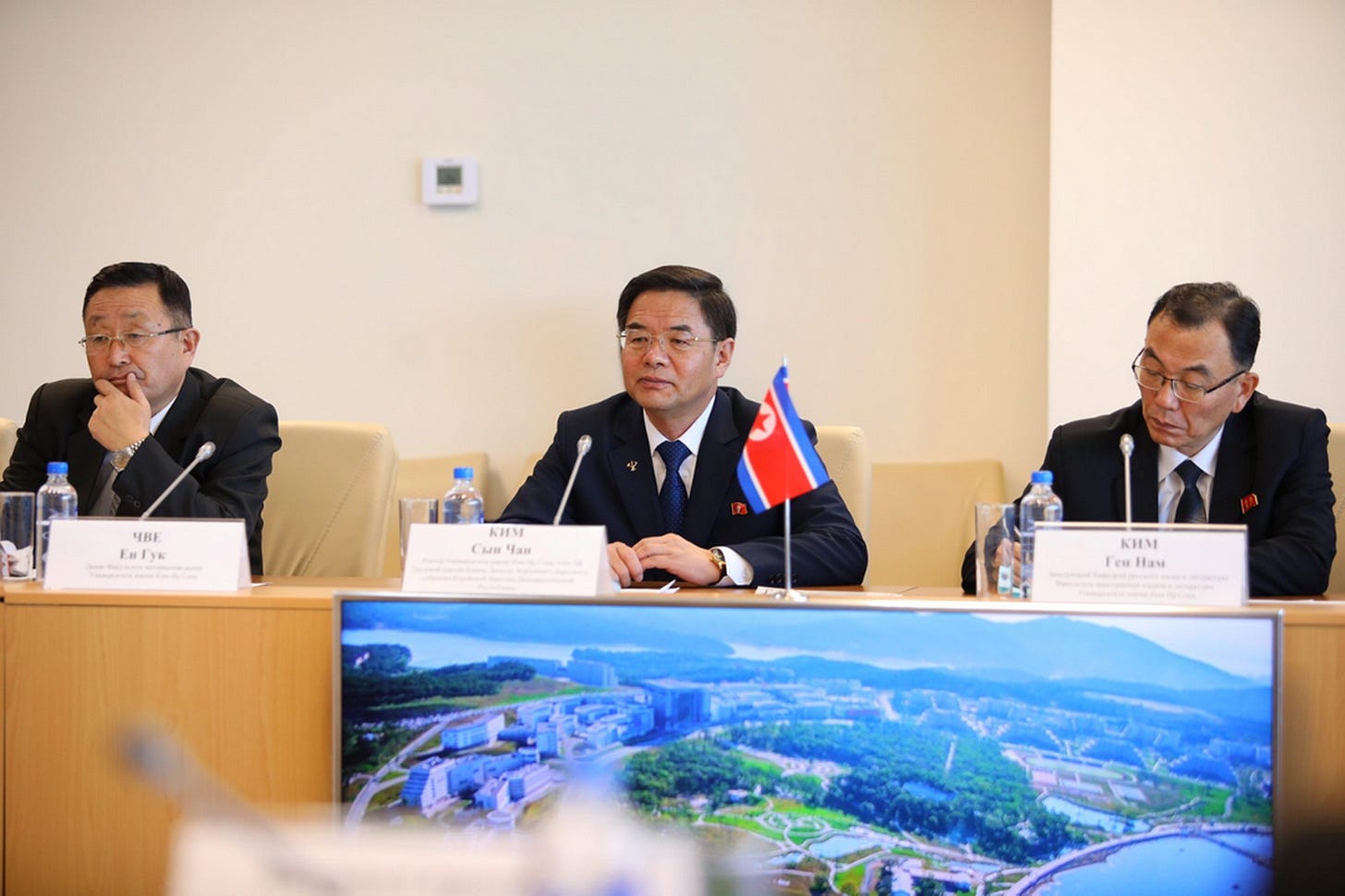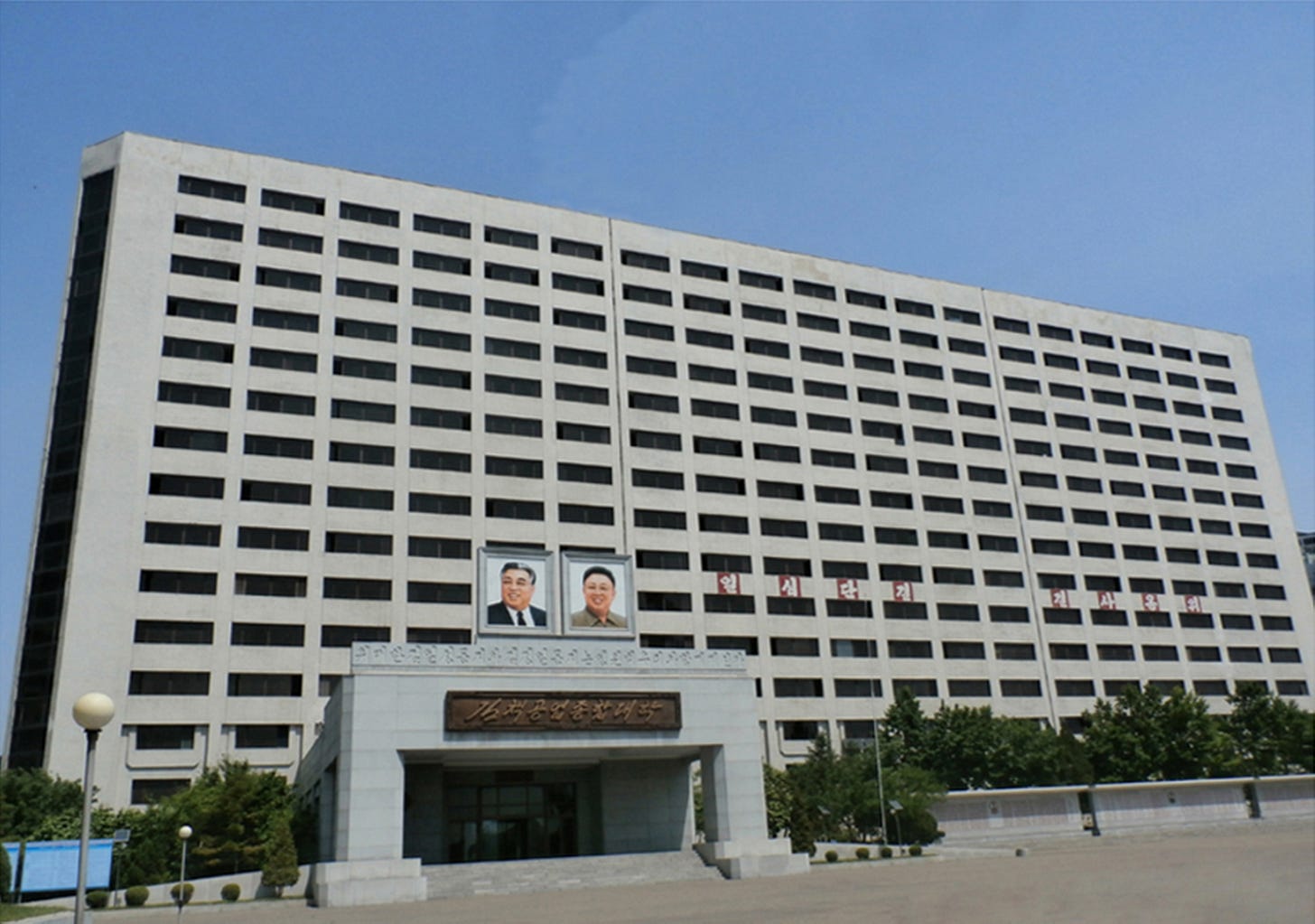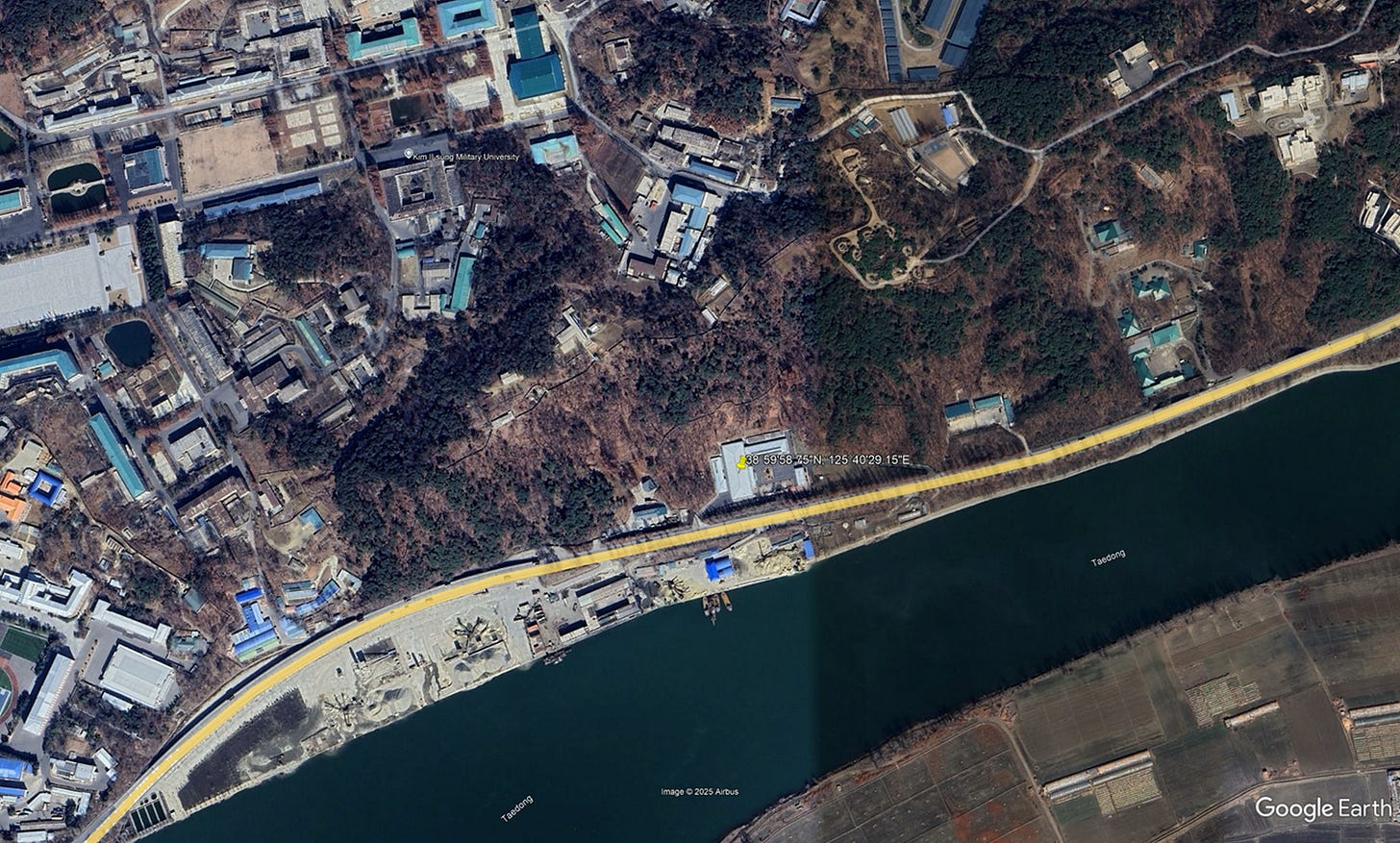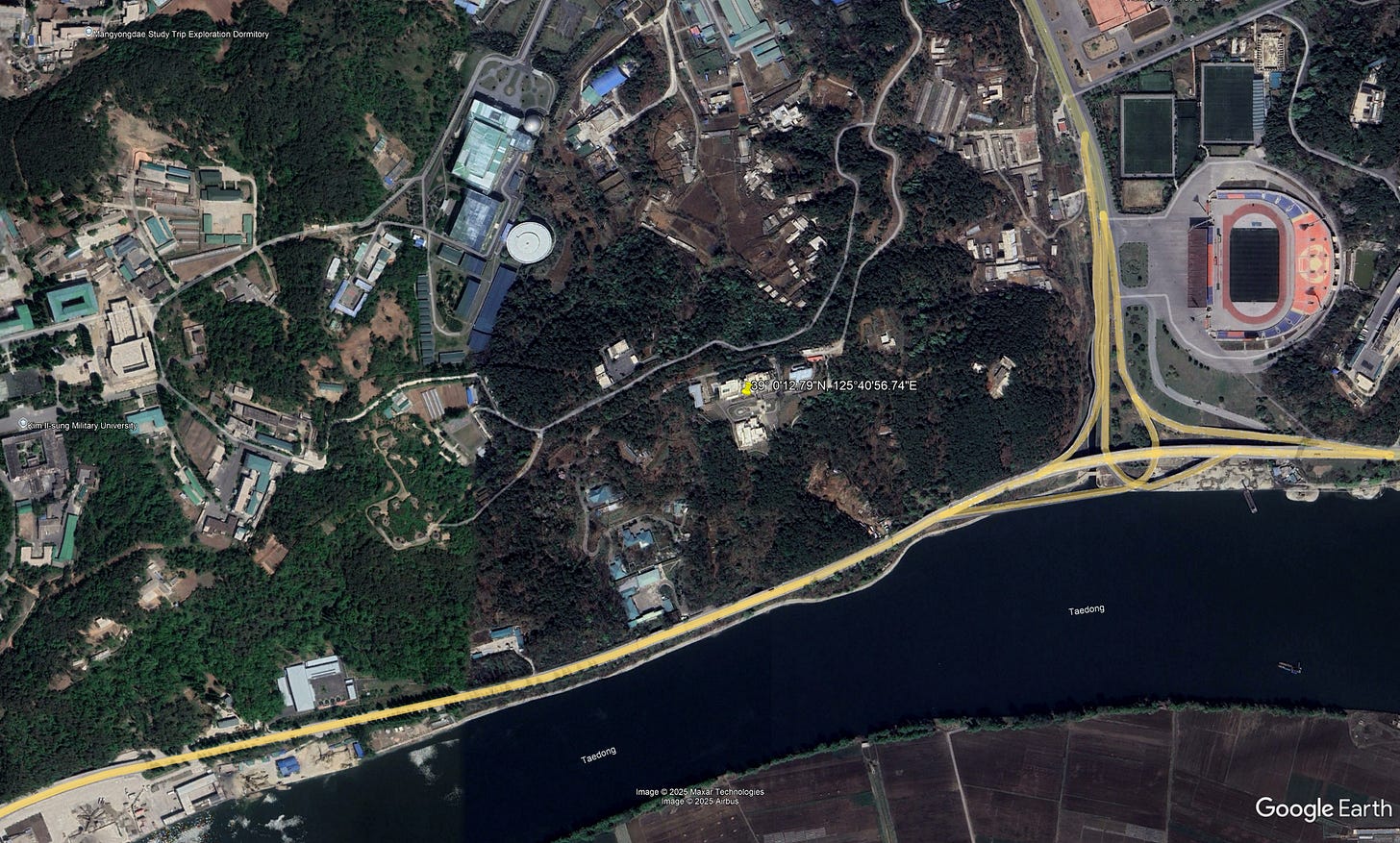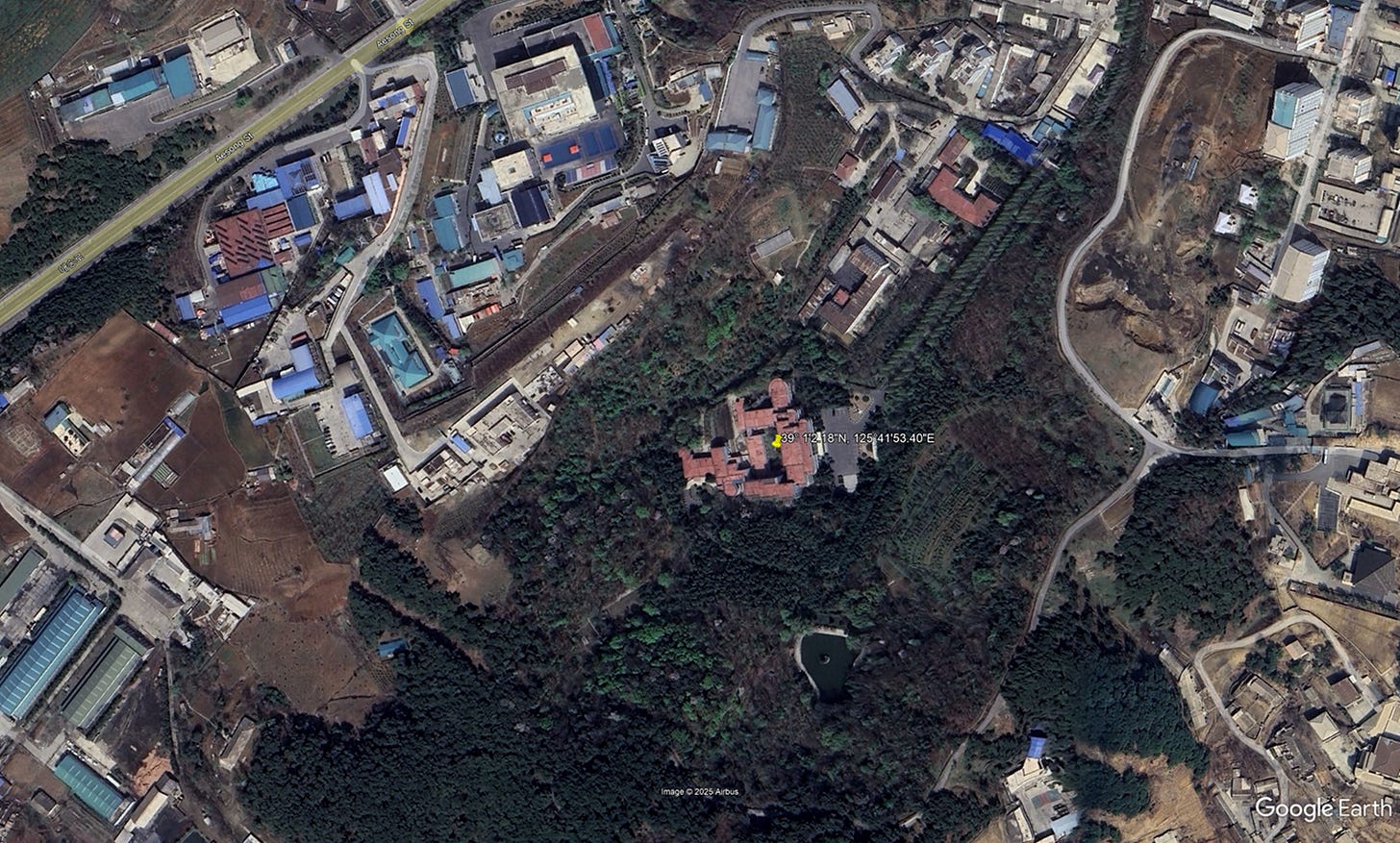OSINT Insider Special Edition #1 - North Korea Uses Its Relationships with Chinese and Russian Universities to Enhance Cyber, A.I. Capabilities
Key Points
North Korea drastically expanded its cyber operations in the past five years to include cyberattacks against cryptocurrency exchanges and industrial espionage.
While Kim Il Military University plays a significant role in North Korea’s cyber operations, Kim Il Sung University and Kim Chaek University of Technology also play a key role.
North Korean universities will leverage their relationships with their Chinese and Russian counterparts to advance their cyber and Artificial Intelligence (A.I.) capabilities.
Both Kim Il Sung University and Kim Chaek University of Technology increased their relationships with several Russian universities, such as Novosibirsk State University and Bauman Moscow State Technical University, to advance their cyber and A.I. capabilities.
The three universities will also leverage their relationships with Chinese universities such as Peking University, Tsinghua University, and the National Defense University of Technology to advance their goals regarding cyber and A.I.
The report uses admiralty codes to provide readers a sense of the accuracy of the assessments it contains. They will be found at the end of sentences or paragraphs in parentheses. Below is a diagram showing readers how to interpret the codes found throughout the report. We used several sources that we cannot include, as there is a risk of losing access to them if they are exposed, to inform our admiralty codes and findings.
In the past five years, North Korea significantly expanded its cyber operations, ranging from cyberattacks against cryptocurrency exchanges to industrial espionage. The expansion also included Research and Development (R&D) efforts to integrate A.I. into these operations as well as for other uses (Jeong, Tae Joo). Although Kim Il Sung Military University (KISMU) plays a significant role in these activities, as Michael Barnhart states in his DTEX report titled "Exposing DPRK’s Cyber Syndicate and Hidden IT Workforce," other universities also play a substantial role (Barnhart). Kim Il Sung University (KISU) and Kim Chaek University of Technology (KCUoT) historically played a key role in developing and using new technologies, such as cyber tools and A.I., to achieve North Korea’s goals and will continue to do so (B2). The universities' relationships with Chinese and Russian universities are also used by North Korea to significantly bolster its cyber and A.I. capabilities (A2). We spoke with Barnhart about KCUoT and KISU's visits to their Chinese and Russian counterparts, and he highlighted how important they are to North Korea:
“The DPRK doesn’t have the luxury of broad international partnerships, so it leans on these relationships to fill training gaps, acquire technical insights, and maintain relevance in strategic domains. These academic exchanges, though small and often underreported, are critical threads in North Korea’s larger technology acquisition strategy.”
Kim Il Sung University (김일성종합대학)
KISU was established in 1946 and is considered one of North Korea's leading universities. The university conducts R&D in various fields via the ten research institutes that fall within the institution. However, three institutes likely focus on research on cybersecurity and A.I. The institutes are the Electronic Calculator Research Institute, the Computational Research Institute, Institute for Advanced Technology Development, and the A.I. Technology Research Institute. The A.I. Technology Research Institute conducts research on A.I. development for use by North Korea (A1). The institute uses foreign-developed A.I.s, such as ChatGPT, to train students on how to integrate and utilize them during research. The state-owned media outlet Voice of Korea showed researchers reading a slide titled “GPT-4 Example: Writing” with two prompts in English during a February 2025 news segment about A.I. research at KISU (Choi, Hee-jin). The slide was part of a larger slideshow that explained ChatGPT's capabilities. The institute likely uses other A.I.s, such as Claude, Perplexity A.I., and DeepSeek, to conduct research on how to apply A.I. to achieve North Korea's aims (B2).
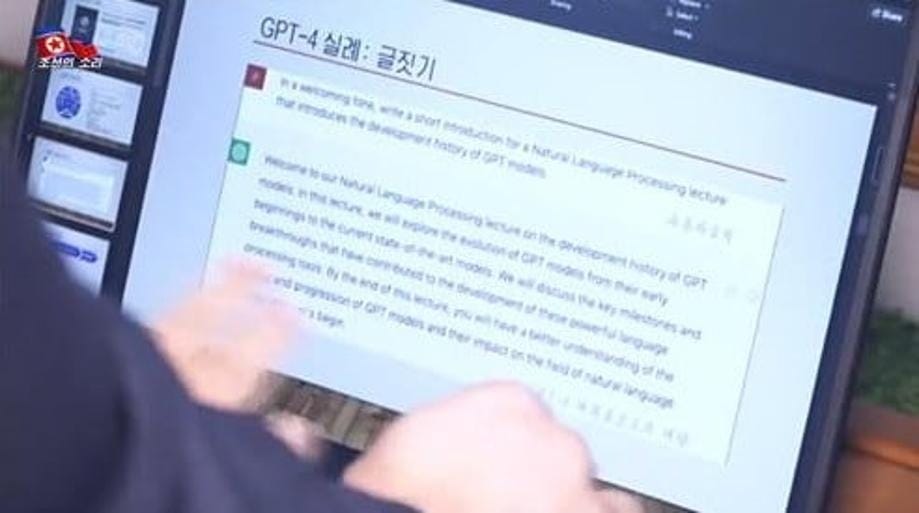
Regarding the Electronic Calculator Research and Computational Research Institutes, they focus on IT and other aspects of cybersecurity. This research includes collaboration with and outreach to universities in other countries such as China and Russia (A1). Barnhart also pointed out how “the visits by staff to universities in China and Russia should be viewed through the lens of strategic necessity, not ideological alignment.” However, these collaborations and meetings occurred before North Korea expanded its cyber operations. In October 2013, the Vice President of KISU, Choi Jeong-ho, led a delegation to visit Peking University in Beijing, China. During the visit, Choi met with staff and faculty from the university’s School of Information Science and Technology and discussed various topics. One topic was selecting individuals to take part in student exchange studies at the university. Choi also pointed out that both universities share similar origins and development, along with common research areas, which will be important for facilitating future cooperation between the institutions.
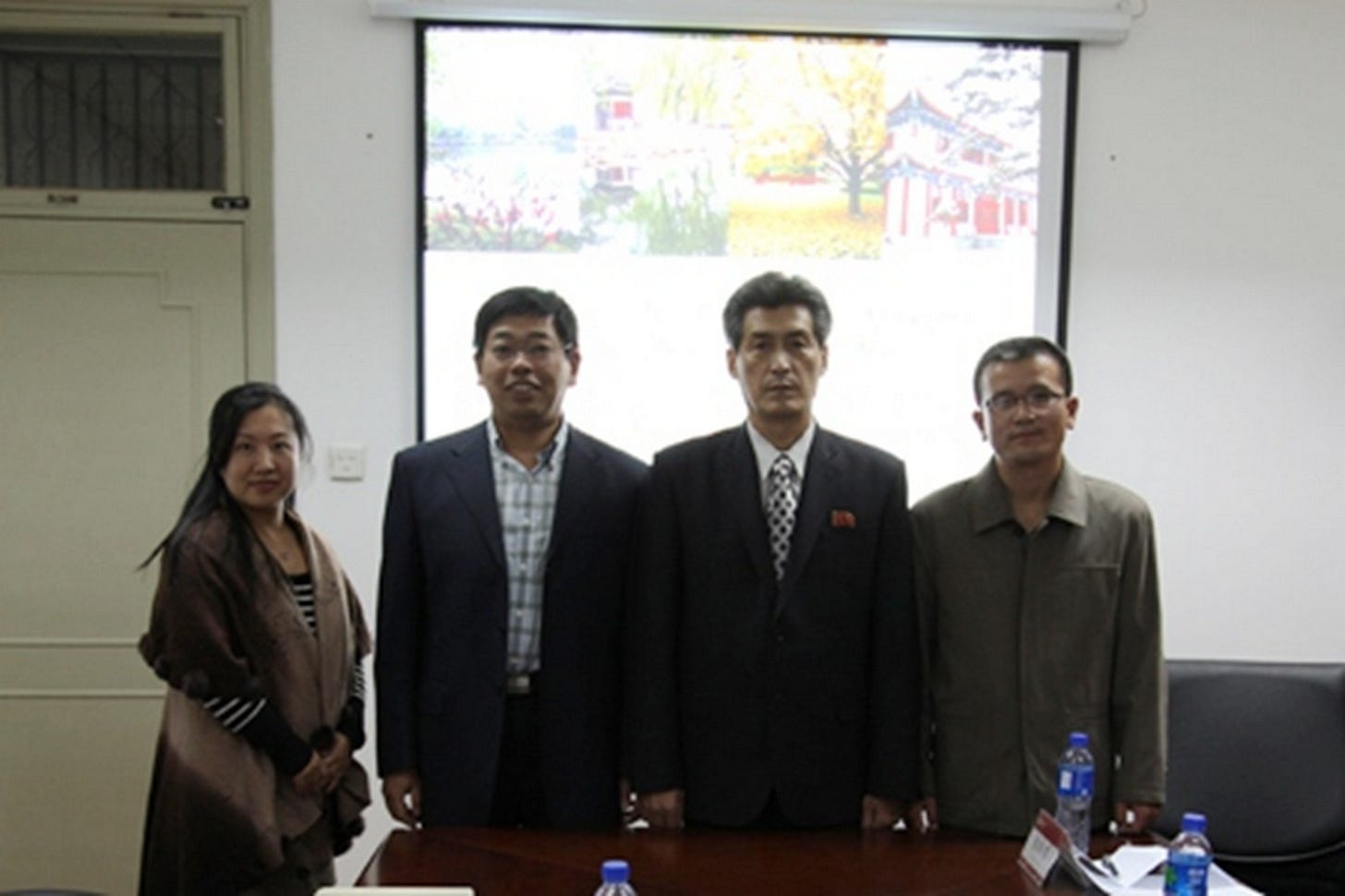
North Korea also reached agreements with Russia to increase research and cooperation in the information technology field using their universities (A1). In April 2025, Novosibirsk State University (NSU) announced that KISU is planning to open a representative office on its campus. The university made the announcement after a delegation led by KISU President Kim Seung-chan visited the university to meet with their Russian counterparts in late January 2025. During the meeting, Kim and NSU President and Russian Academy of Sciences member Mikhail Fedrouk agreed to intensify cooperation between the two universities using student and faculty exchanges and joint scientific research in information technology and other fields. They also agreed that both universities will develop a joint roadmap to effectively organize their efforts this year.
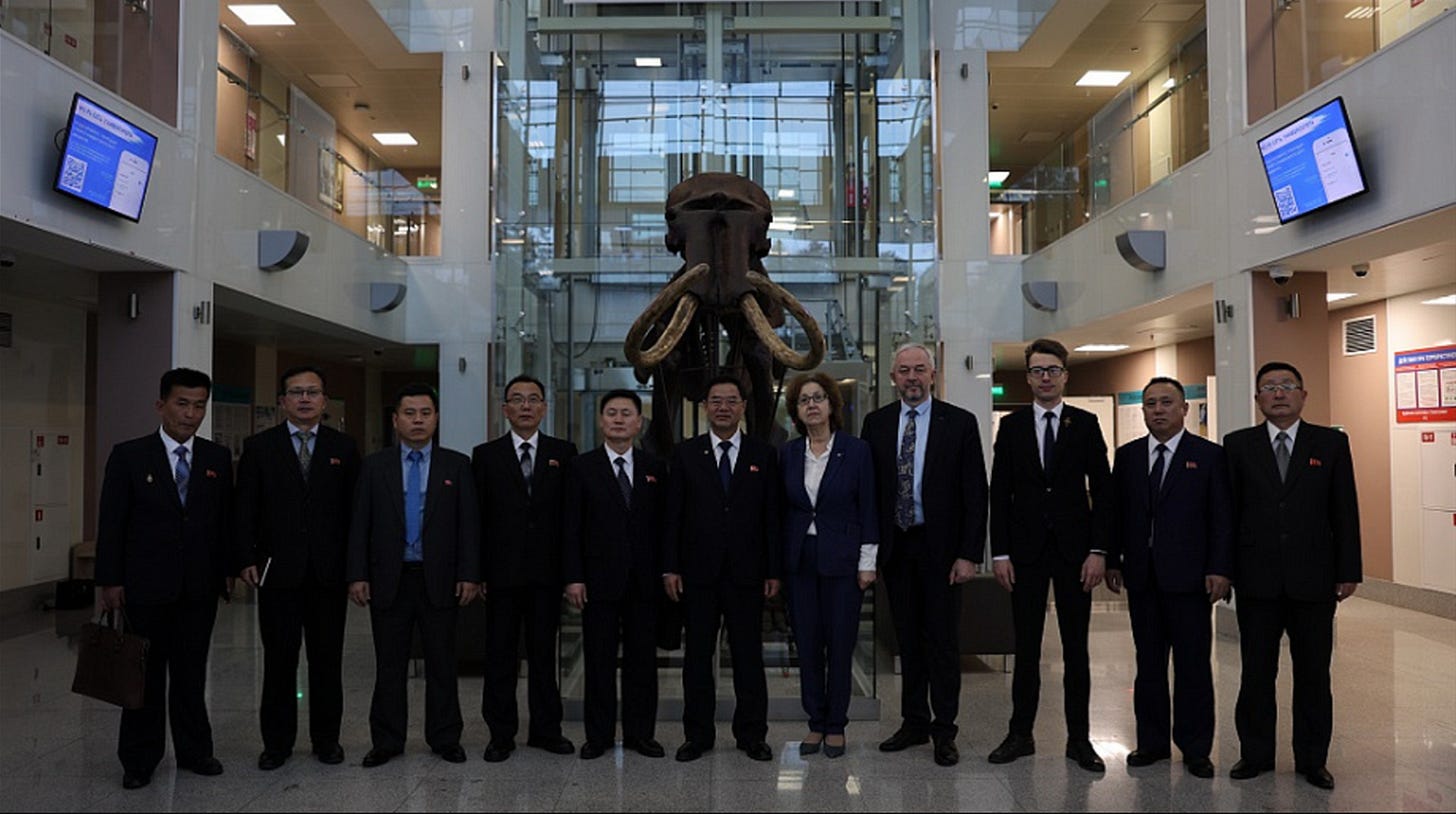
The two countries, however, previously discussed ways to increase cooperation between Russian universities and North Korean research institutes (A1). In May 2024, the Russian Minister for Science and Higher Education, Valery Falkov, held a working meeting with Kee Chun-gil, the Chairman of the State Committee for Science and Technology of North Korea. The delegations discussed ways to increase joint cooperation between Russian universities and North Korean institutes, specifically in information technology, ecology, and agriculture. The Russian Minister for Development of the Far East, Alexey Chekunkov, stated that North Korea requested that Russia increase its quota for North Korean students allowed to study information technology and construction in the country. Chekunkov held a working meeting with Sin Hong-chol, the Ambassador Extraordinary and Plenipotentiary of the DPRK to the Russian Federation, during the St. Petersburg International Economic Forum in June 2022. Both Checkunkov and Sin also discussed increasing scientific cooperation between the two countries during the meeting.
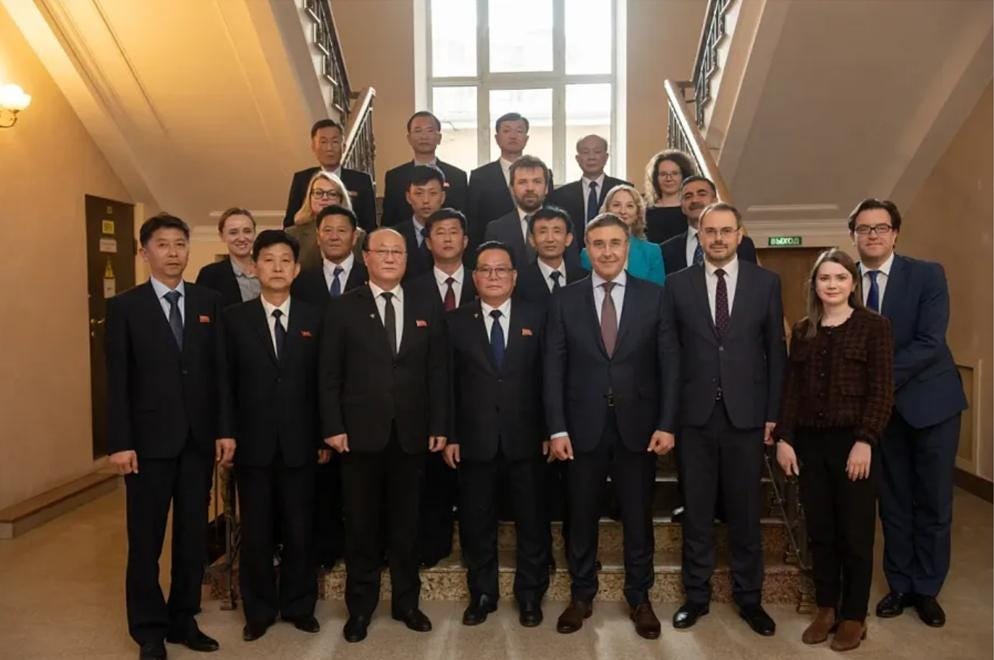
Additional Photos
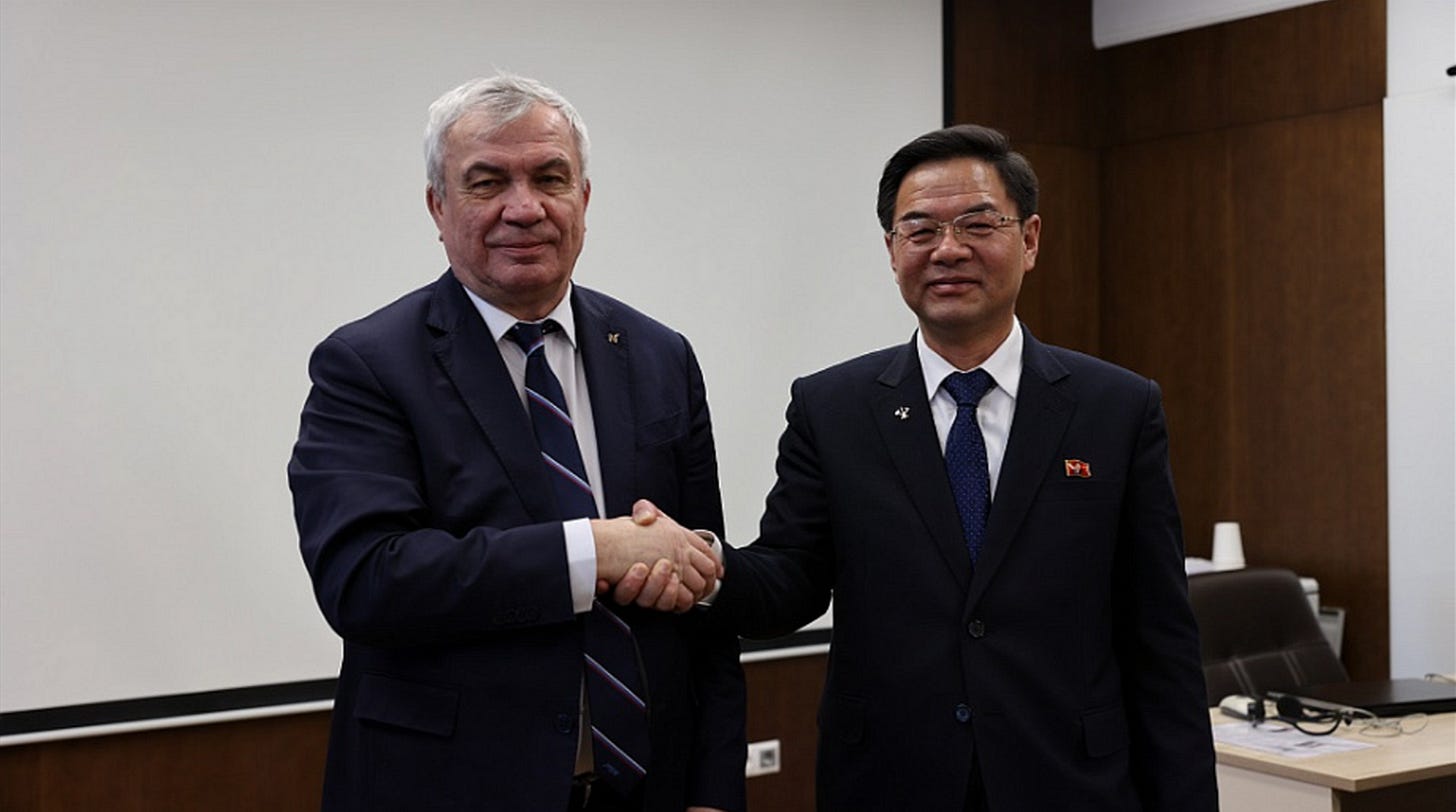
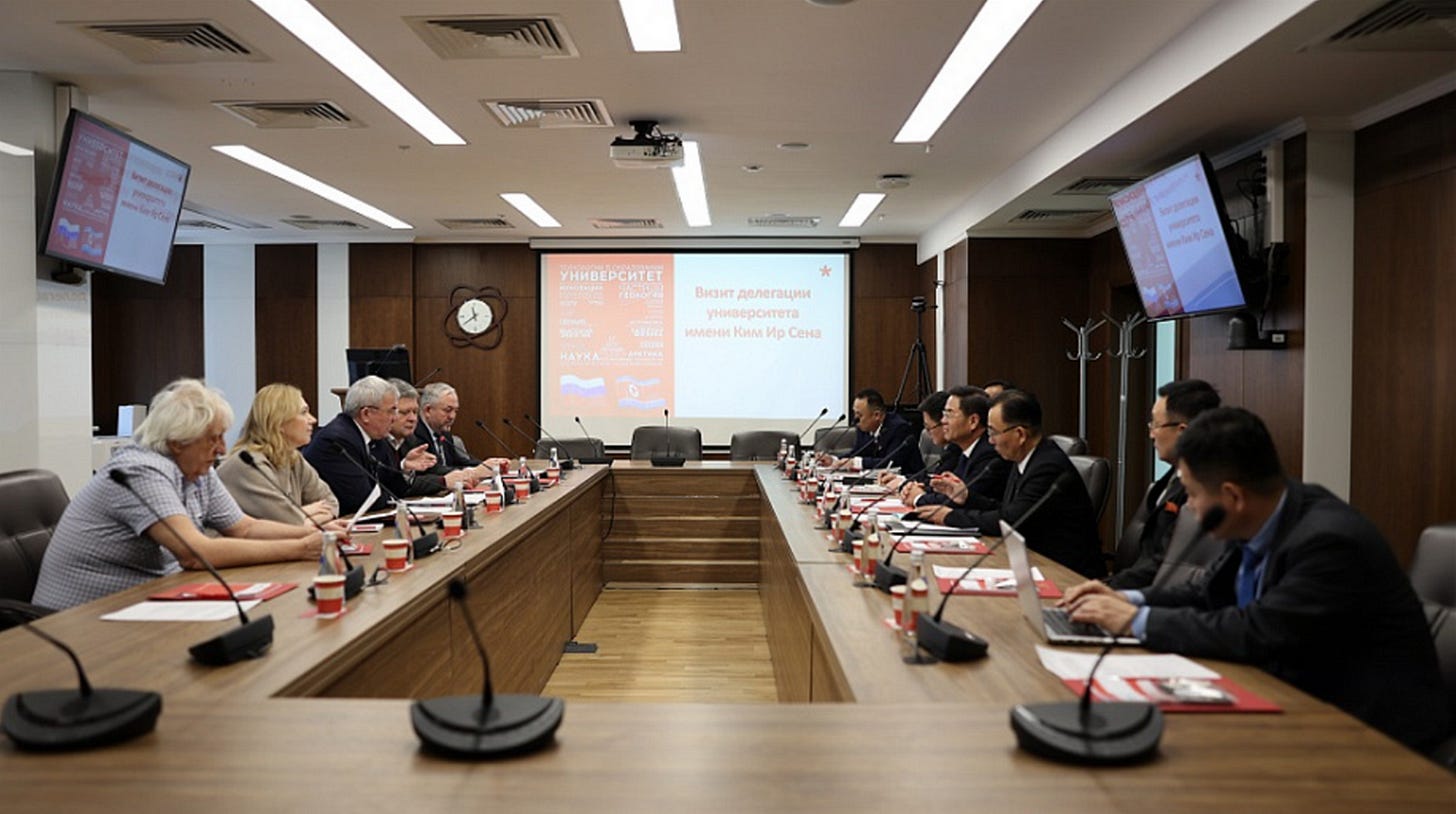
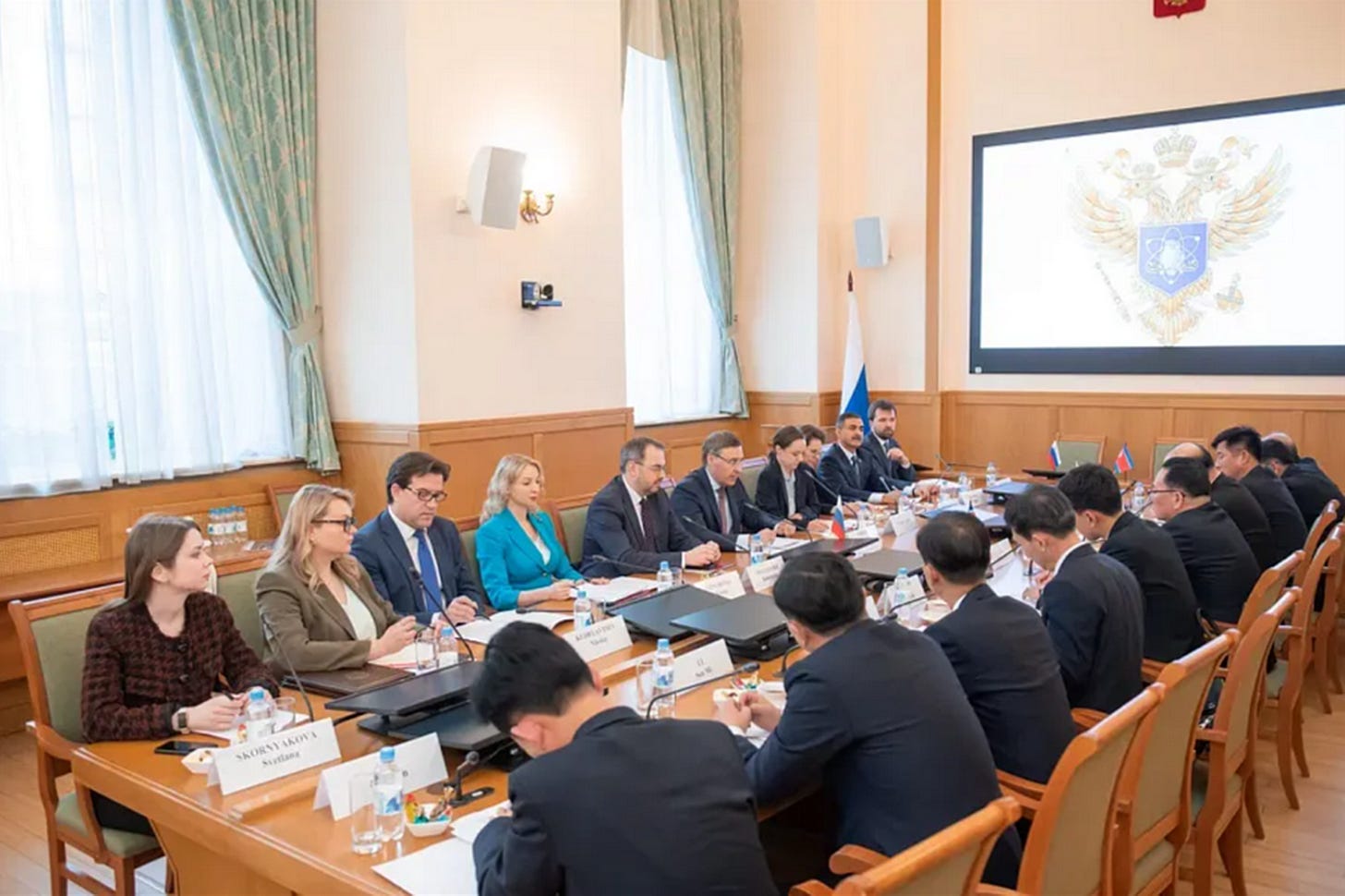
Kim Chaek University of Technology (김책공업종합대학)
KCUoT is considered the best engineering and technology university in North Korea and conducts significant R&D in A.I. and cybersecurity (A1) (Choi, Hyun-seok). The university’s R&D in A.I. and cybersecurity will be conducted through the Information Technology Research Institute, the Designing Information Research Institute, and the Information Communication Research Institute. While the university's recent activities are extremely limited, more information exists about its past activities (A1). For instance, a team from the university placed 8th in the 2019 International Collegiate Programming Contest (ICPC) World Finals held in Porto, Portugal (Williams). The team also placed first in the 2019 ICPC Asia East Regionals held in Xi’an, China, where it beat several notable Chinese universities, such as Peking and Tsinghua Universities (Competitive Programming Hall of Fame). North Korean leader Kim Jong Un said that the university will play a key role in advancing the country’s science and technology during its 75th anniversary in 2023 (Jeong, Gyo-jin).
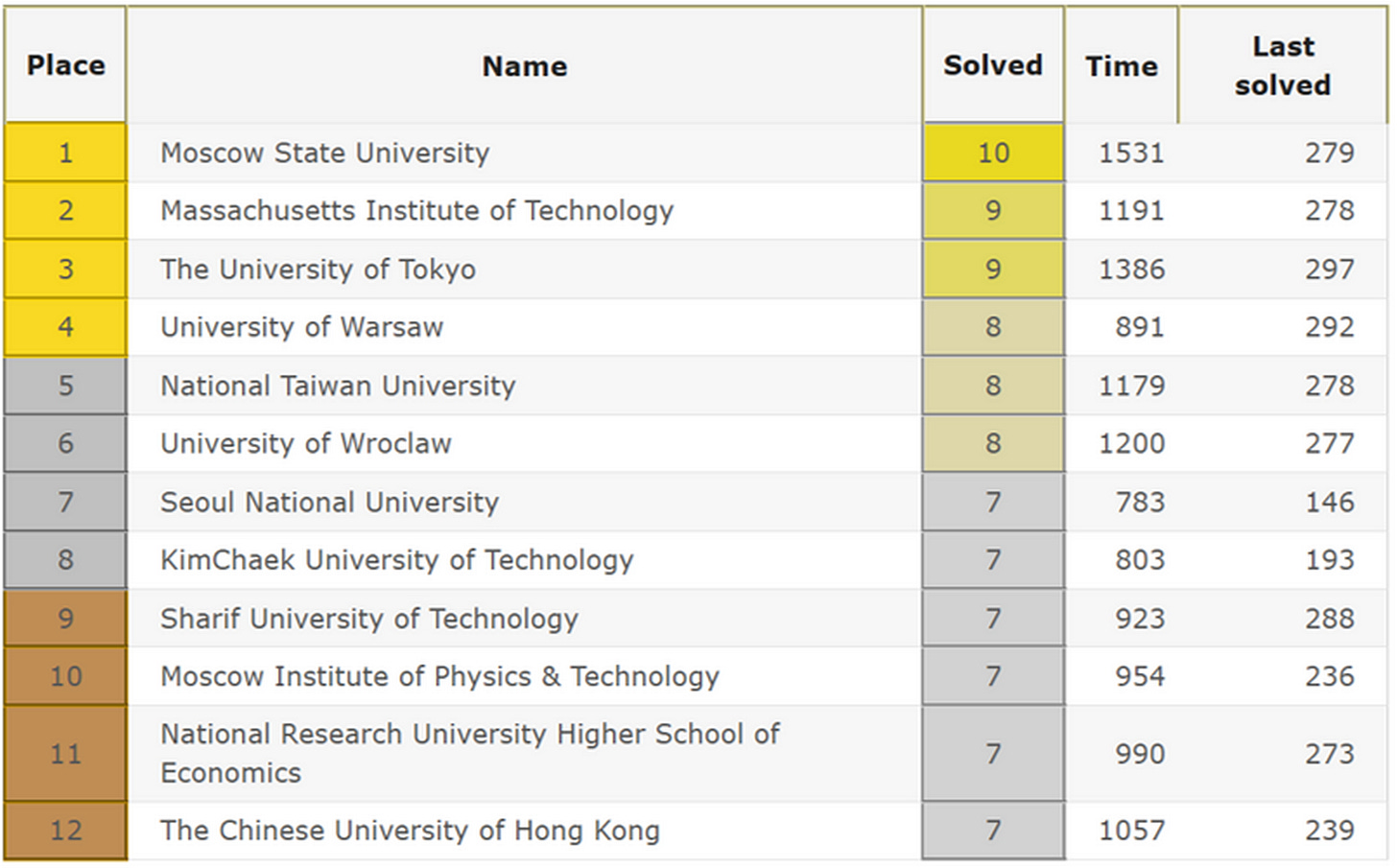
The university also sent delegations to visit Chinese and Russian universities (A1). In July 2019, a delegation led by then KCUoT President Hong So-hon, Jon Ji-hyon, the Director of the Post and Telecommunications Department, and other staff visited Tsinghua University in Beijing, China. During the visit, Hong and the delegation visited various laboratories and institutes, such as the State Key Laboratory of Power System and Energy Internet Innovation Institute. However, KCUoT staff visited five Russian universities to meet with leadership and to sign agreements between late January and early February 2025 (Посольство России в КНДР/Russian Embassy in the DPRK). During the delegation’s visit to Kazan Federal University (KFU), KCUoT President Park Ji-min met with his counterpart, Lenar Safin, to discuss ways to increase cooperation between the two universities. The delegation also toured various institutes, including the Institute of A.I. and the Institute of Information Technology and Intelligent Systems. At the end of the visit, Park and Lenar signed an agreement to increase cooperation in information technologies, medicine and bioengineering, etc.
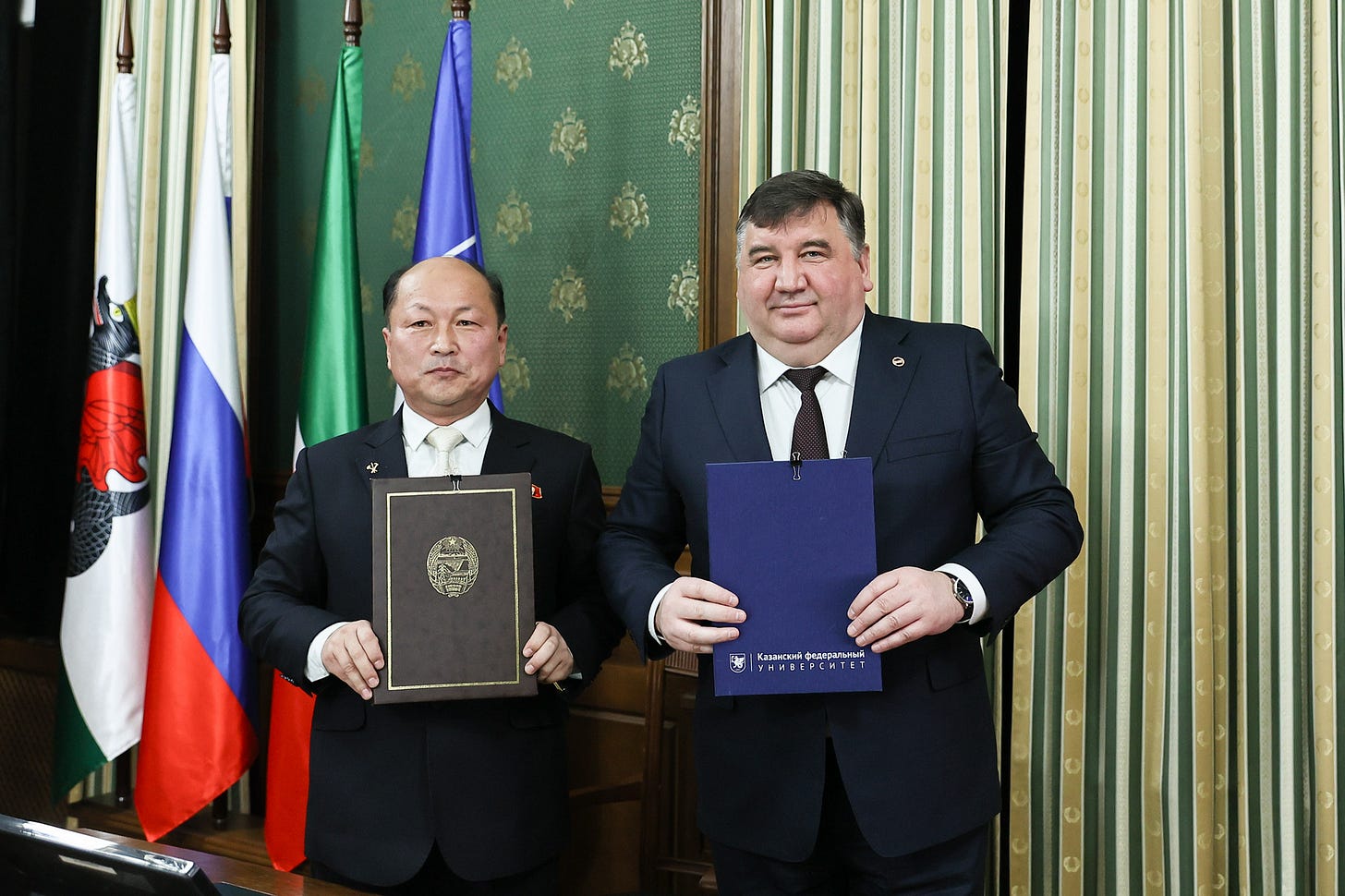
The delegation also visited Moscow Power Engineering Institute (MPEI), where they toured various institutes, such as the Institute of Power Engineering and Mechanics. The MPEI and the KCUoT delegations also discussed ways to enhance cooperation, increase opportunities for MPEI to train KCUoT students and postgraduates, and conduct joint research. Park and other faculty visited Bauman Moscow State Technical University (BMSTU), where they visited the Center for Monitoring and Cybersecurity. The center contains the university’s Security Operations Center (SOC) that monitors BMSTU’s information infrastructure and identifies and responds to potential cyber threats. However, the center also trains students through professional education programs that provide them practical cybersecurity skills. The center's head gave a tour and presentation that outlined its research areas, such as A.I. and its applications and cyber threats. Mikhail Gordin, the President of BMSTU, and Park signed a protocol agreement to increase cooperation between the two universities. The delegation also visited the Far East Federal University, where they discussed increasing cooperation in biomedicine and medical training. A delegation from KISU, led by Kim Seung-chan, was also present during the KCToU visit. Finally, Park and the delegation visited the Lomonosov Moscow State University as part of the trip.
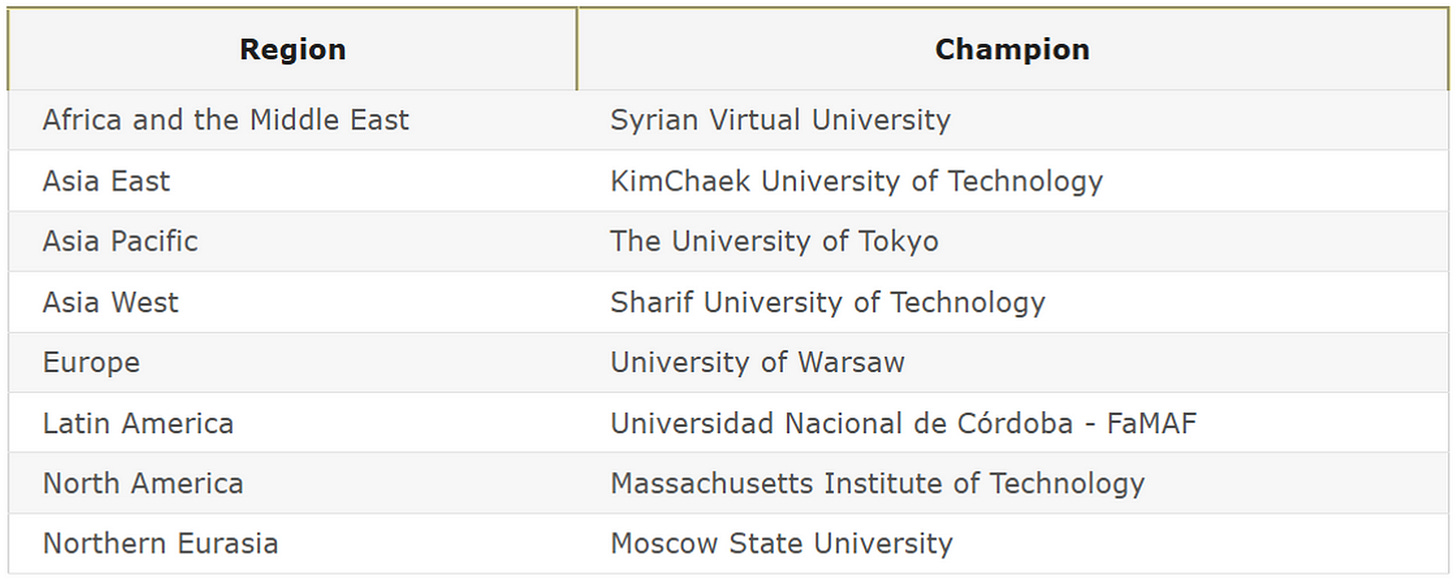
Kazan Federal University Visit Photos
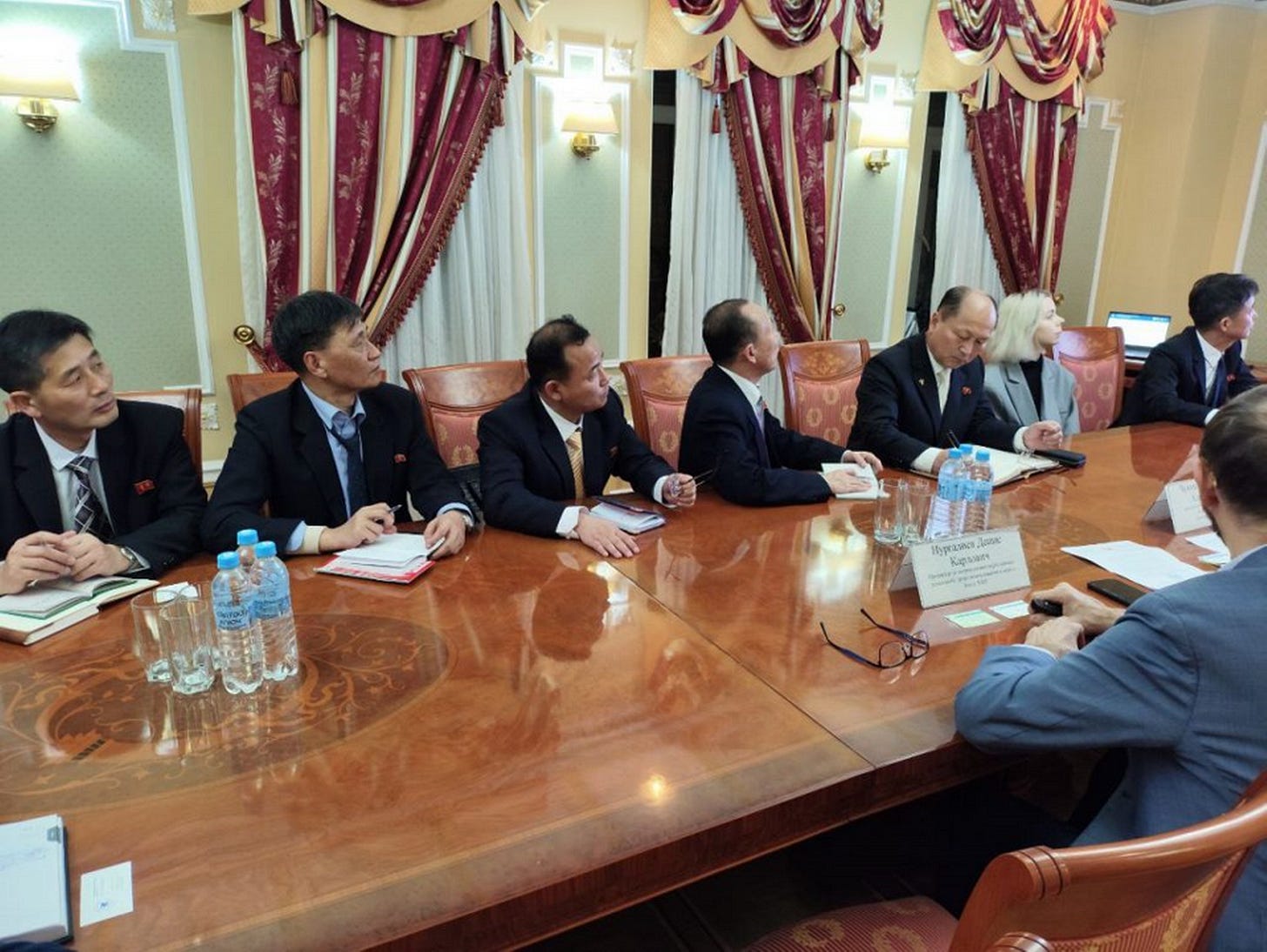
Moscow Power Engineering Institute Visit
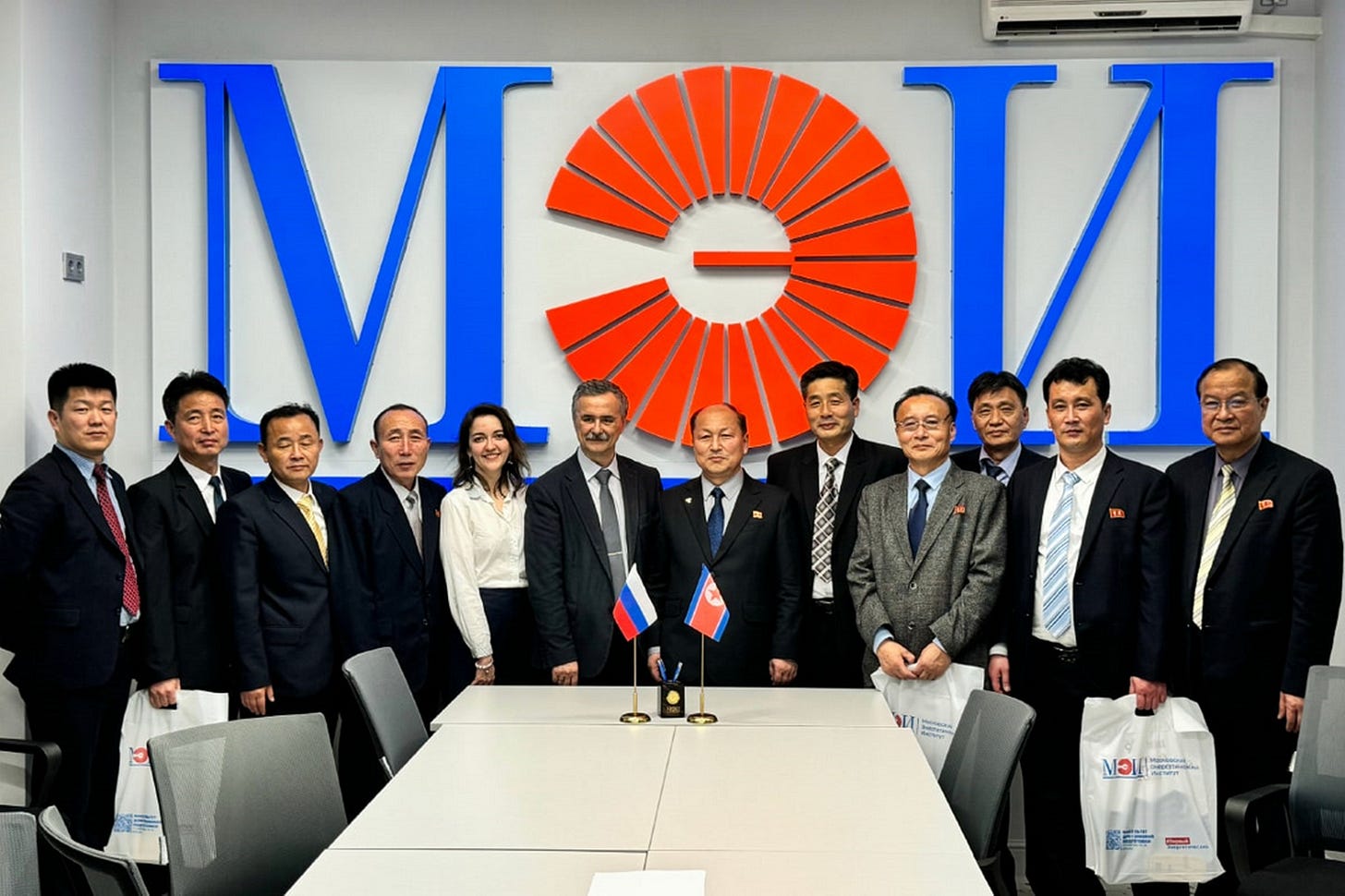
Bauman Moscow State Technical University Visit
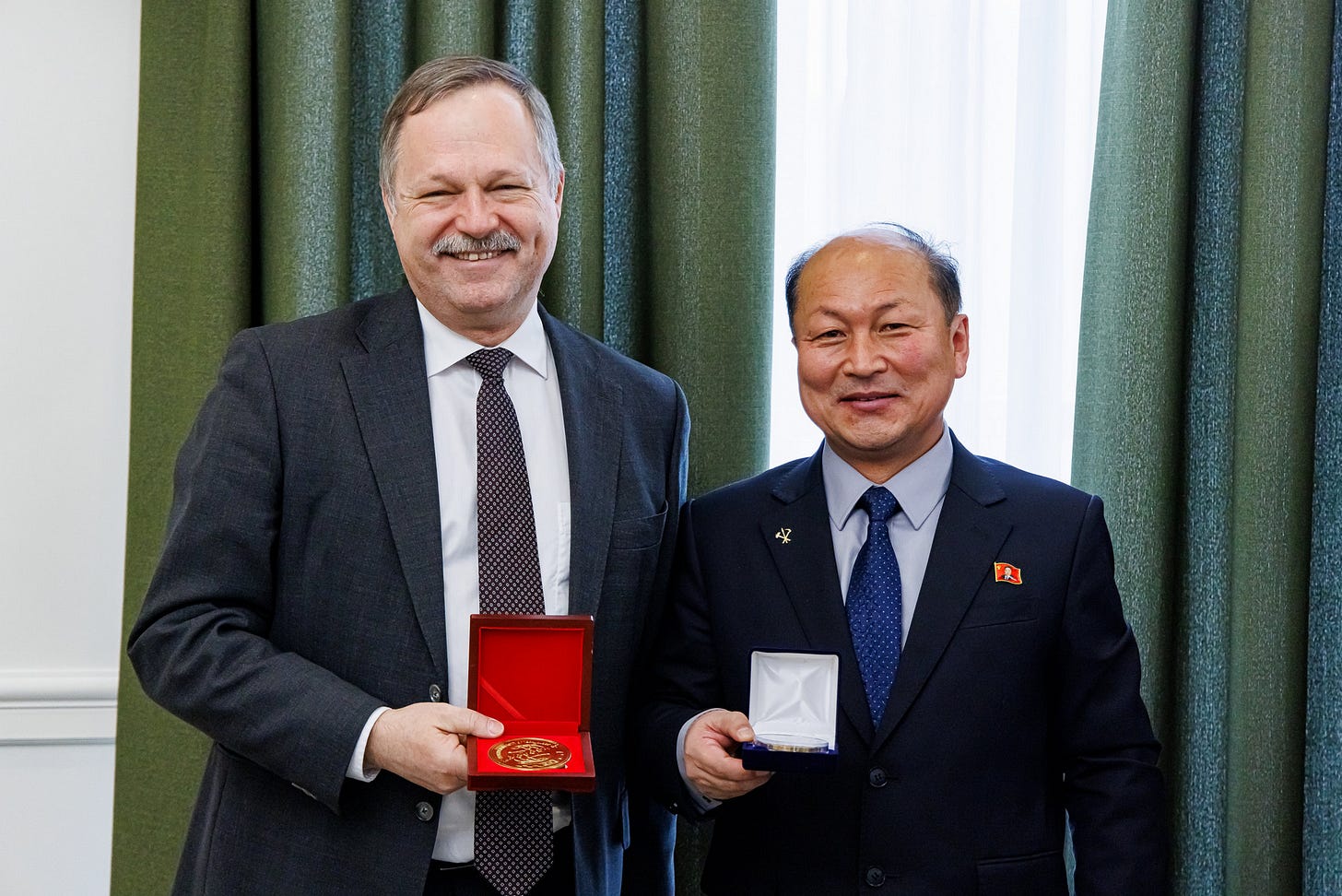
Far Eastern Federal University Visit
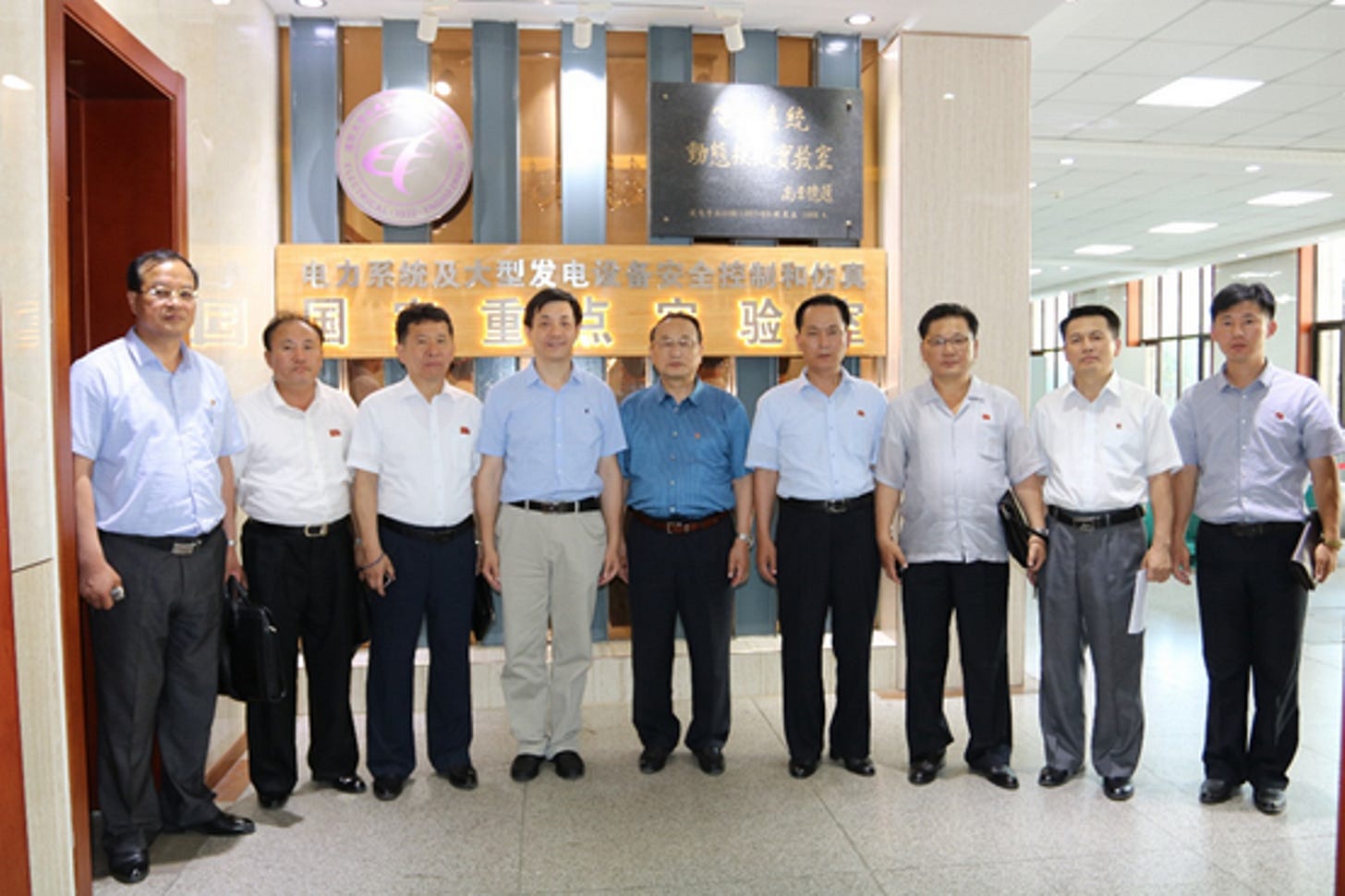
Kim Il Sung Military University (김일성군사종합대학)
KISMU is a university that differs from KISU and KCToU since it was created to train officers belonging to the Korea’s People’s Army (KPA). The university conducts research into A.I. and cybersecurity through its College of Computer Science. KISMU also conducts research using the Computer Network Lab, Data Security Lab, and Software Engineering Lab. Furthermore, KISMU offers programs focused on A.I. and cybersecurity, including those that protect against hacker intrusions, develop A.I. technologies, and provide Linux distribution programs for multilingual processing.
While KISMU does not publicize its activities or visits to its Russian or Chinese counterparts, satellite imagery reveals significant activity at some buildings that are associated with the university (B2). Additionally, the report titled “The Pyongyang Diamond Pt. 1: A Look Inside Mangyongdae District” discusses changes in other locations associated with KISMU. The DTEX report also discusses the important role it plays in developing cadres for North Korea’s cyber programs.
1. 38°59'58.75"N, 125°40'29.15"E
The coordinates are for a building located along the banks of the Taedong River and are likely associated with Kim Il Sung Military University (KISMU) and the North Korean military (B2). This assumption arises from the building’s proximity to the university and the construction that took place between 2019 and 2021, which altered the overall layout of the complex (B2). However, as noted in the CyberBlade report, the area has developed since 2015, which points to the location’s evolving role in KISMU and North Korea’s military cyber activities.
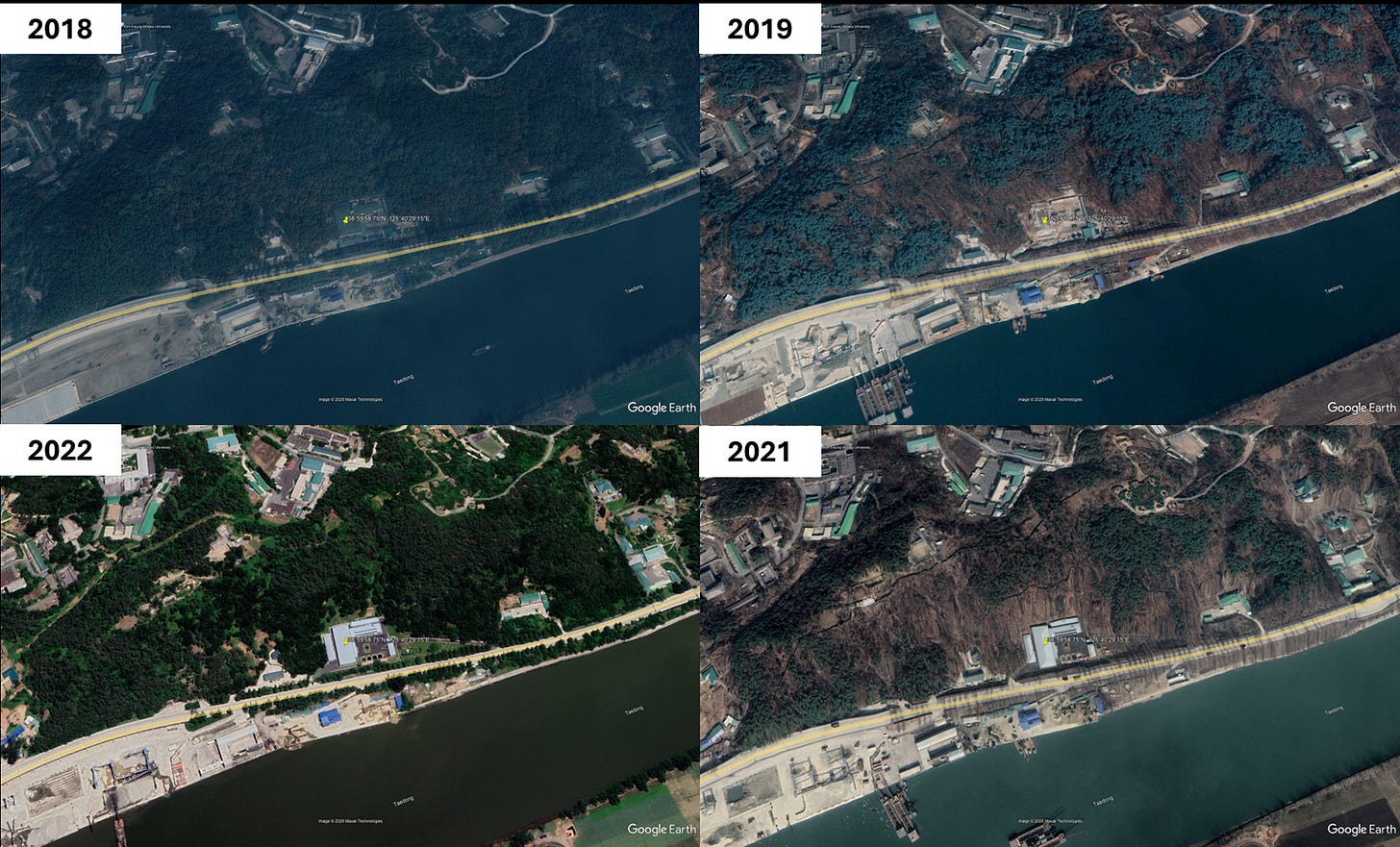
This construction indirectly correlates to North Korea’s increasing its cyber operations against various targets after 2021 (Matishak). Furthermore, the building would support North Korea’s efforts to advance its cyber capabilities to conduct operations against various targets across the globe (B2).
2. 39° 0'12.79"N, 125°40'56.74"E
The second coordinates are for a complex located approximately 0.47 miles (0.76 kilometers) northeast of the first building. The complex is likely part of the KISMU campus because of its proximity to the university (B2). Furthermore, the construction took place over the same three-year period as the first building.

3. 39° 1'2.18"N, 125°41'53.40"E
The third coordinates are for a complex that is made up of multi-story buildings located approximately 1.71 miles (2.76 kilometers) northeast of KISMU. Based on the analysis of imagery, the complex has not undergone any construction or renovation between 2019 and 2024 (A1). The building's occupant is unknown, but it is likely linked to the North Korean government or military. This assumption is based on the complex's location relative to KISMU and the Red Flag Mangyongdae Revolutionary School, a school that serves the North Korean elite based in Pyongyang (B2).
Additional Photos
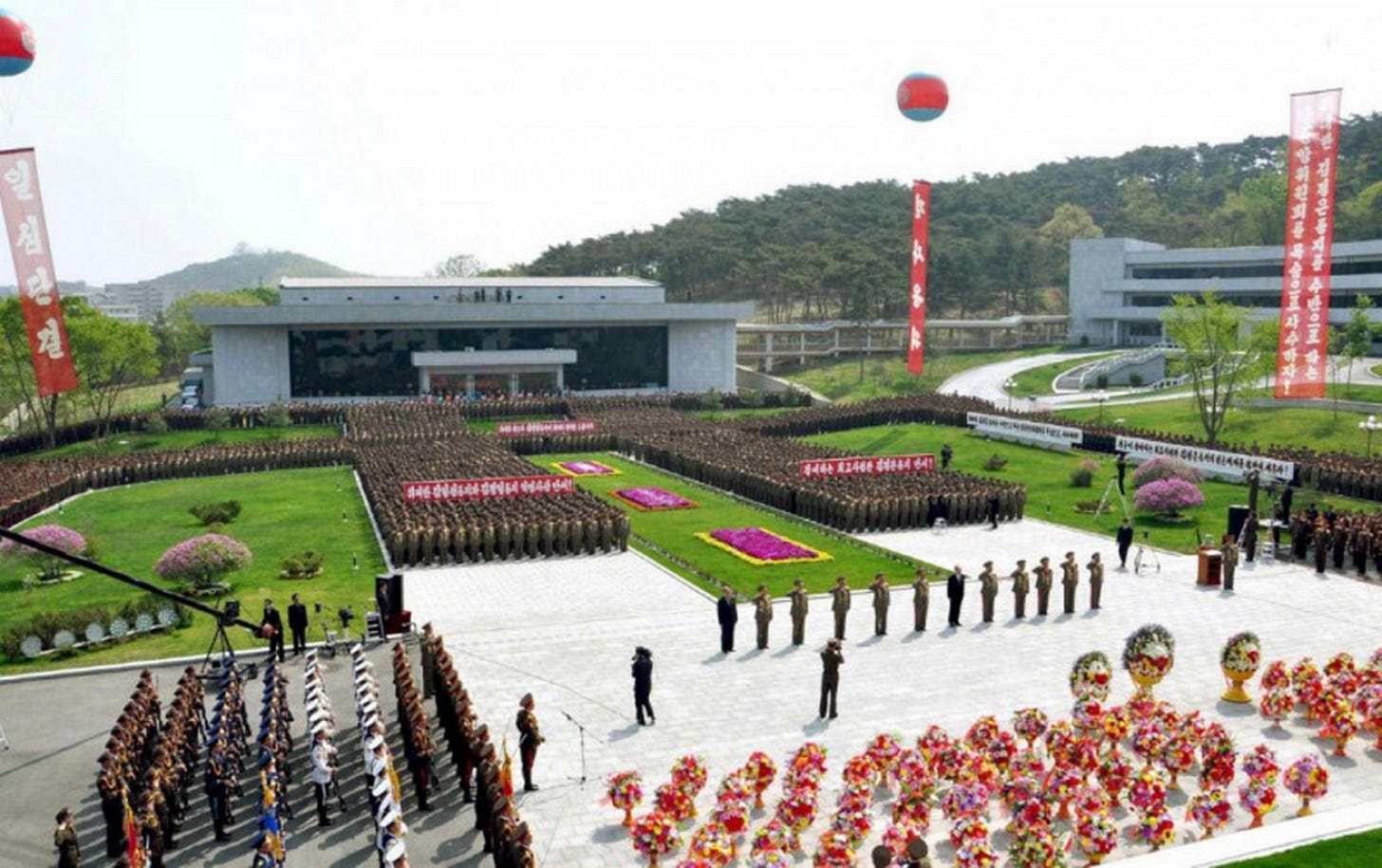
Additional imagery was removed for brevity but is available upon request (Figures 15, 16, and 20).
Works Cited
Note: We used several sources that we cannot include, as there is a risk of losing access to them if they are exposed, to inform our admiralty codes and findings.
Barnhart, Michael. “Exposing DPRK Cyber Syndicate and Hidden IT Workforce.” DTEX Systems, 14 May 2025, [https://reports.dtexsystems[.]com/DTEX-Exposing+DPRK+Cyber+Syndicate+and+Hidden+IT+Workforce.pdf].
Choi, Hee-jin. “Kim Il-Sung University Also Learns ChatGPT… North Korea Is Working Hard to Acquire AI Technology.” SBS News, 22 Feb. 2022, [https://news.sbs.co[.]kr/news/endPage.do?news_id=N1007994483].
Choi, Hyun-seok. “[Pyongyang NOW] Kim Chaek University of Technology, North Korea’s Version of POSTECH, Celebrates Its 75th Anniversary... North Korea: ‘Kim Jong-Un Values Science and Technology Talent.’” Yonhap News, 27 Sept. 2023, [www.yna.co[.]kr/view/AKR20230927131600535].
Competitive Programming Hall of Fame. “ICPC 2019 World Finals.” Competitive Programming Hall of Fame, 19 Apr. 2029, [cphof[.]org/standings/icpc/2019].
Jeong, Gyo-jin. [Rodong Sinmun Magnifying Glass] “I Value Kim Chaek University of Technology the Most.,” 27 Sept. 2023, [www.spnews.co[.]kr/news/articleView.html?idxno=71053].
Jeong, Tae Joo. “N. Korea Ramps up Cyber Offensive: New Research Center to Focus on AI-Powered Hacking.” Daily NK, 12 Mar. 2025, [www.dailynk[.]com/english/n-korea-ramps-up-cyber-offensive-new-research-center-to-focus-on-ai-powered-hacking/].
Matishak, Martin. “State-Sponsored North Korean Hackers Responsible for Blitz of Attacks in 2021.” The Record - Recorded Future News, 21 Nov. 2021, [https://therecord.media/state-sponsored-north-korean-hackers-responsible-for-blitz-of-attacks-in-2021].
Посольство России в КНДР/Russian Embassy in the DPRK. “ВОЗВРАЩЕНИЕ ДЕЛЕГАЦИИ ПОЛИТЕХНИЧЕСКОГО УНИВЕРСИТЕТА 김책공업종합대학대표단 귀국 [Kim Chaek University of Technology Delegation Returns Home].” Facebook, 7 Feb. 2025, [Archived link can be found here: https://archive[.]ph/nYLJ2].
Williams, Martyn. “Kim Chaek University Ranks 8th in International Programming Contest.” North Korea Tech - 노스코리아테크, 4 May 2019, [www.northkoreatech[.]org/2019/05/04/kim-chaek-university-icpc-2019/].
Want to support more work like this? Become a paid subscriber to the OSINT Insider:



